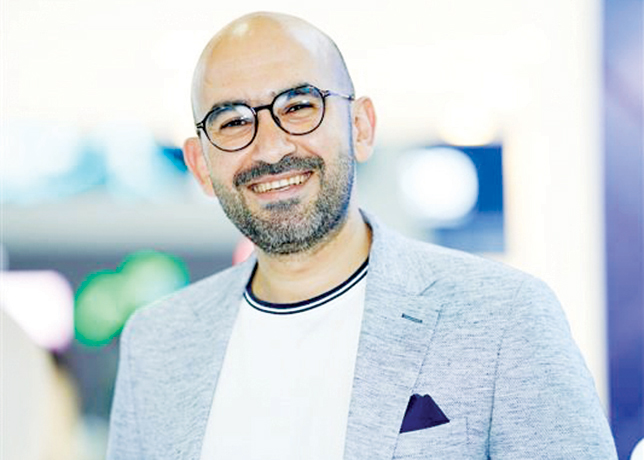
 The World Bank sees job creation as a transformative force capable of lifting communities
The World Bank sees job creation as a transformative force capable of lifting communities
As youth populations surge in emerging markets, leaders at the World Bank rally behind infrastructure, innovation, and inclusive policies to unlock millions of jobs and safeguard global stability
As an unprecedented wave of young people prepares to enter the workforce across developing and emerging markets, the world faces a challenge that is both daunting and hopeful: Creating enough decent jobs to match the ambitions of a generation.
At the World Bank Spring Meetings 2025 in Washington DC, policymakers, business leaders, and young changemakers came together to confront that future–one job, one story, and one bold idea at a time.
THE NUMBERS TELL A STARK STORY
In the next decade, 1.2 billion young people will come of working age in countries where just 420 million new jobs are expected to materialise; the math is sobering, and the social implications could be devastating.
But the gathering’s message in the session titled, ‘Jobs: The Path to Prosperity’, was clear: With the right mix of policy, infrastructure, capital, and vision, this looming crisis can be turned into an opportunity for shared prosperity.
The World Bank has now made job creation central to its mission, framing employment not simply as a by-product of growth but as its engine – a transformative force capable of lifting communities, mending economies, and even staving off conflict.
THREE STORIES OF RESILIENCE & REINVENTION
The event opened with a trio of personal testimonies, each offering a glimpse into how lives, businesses, and entire industries can be reshaped by access to opportunity.
In South Africa, Nonkululeko Nyembezi, Chairman of Standard Bank Group, shared how a renewable energy programme born out of an electricity crisis has not only stabilised the national grid but sparked a green energy revolution.
'Thirteen years ago, we had blackouts and a failing public utility. Today, private sector-led renewables deliver over 6,000 megawatts of power, with more to come,' she said. The project has created over 82,000 job years and is on track to employ 200,000 people by 2030.
For Anthony Tan, CEO and co-founder of Grab in Southeast Asia, the jobs story is digital. What began as a ride-hailing app has become a livelihood platform for millions, connecting drivers, food vendors, and small businesses to customers through smartphones.
'It’s more than a ride or a meal delivery,' said Tan. 'It’s economic empowerment in people’s hands.'
Christina Williams, a young lawyer from Jamaica, provided perhaps the most moving story. Born into poverty and raised by a father who couldn’t read, she spoke of the sacrifices her family made for her education – and the ongoing struggle for young people like her to find meaningful, dignified work at home.
'The opposite of poverty is not wealth, it’s justice,' she told the room. 'We must think about livable wages, flexible jobs, and careers that allow us to build lives in our own communities.'
THE THREE PILLARS OF JOB CREATION
In a dynamic panel discussion, policymakers and investors dissected what it truly takes to create jobs in a world of fiscal constraints, climate pressures, and restless youth.
Dr Rania Al Mashat, Egypt’s Minister of Planning, offered a simple but powerful framework: economic infrastructure, physical infrastructure, and human capital.
'You can’t have firms and factories without roads, grids, and skilled workers. Stability and smart policy reforms are equally vital,' she said.
Douglas Peterson, former head of S&P Global, emphasised the critical role of financial infrastructure.
'Investors need transparency, good regulations, and markets they can trust,' he explained. 'Without this, capital won’t flow.'
On the private capital front, Dilhan Pillay Sandrasegara, CEO of Temasek Holdings, shared how his company is closing funding gaps for marginally bankable projects in emerging economies.
Temasek, in partnership with HSBC, has created platforms to de-risk investments and attract private capital for sectors like renewable energy and sustainable transport. 'For us to thrive as a region, we need our neighbours to thrive too,' he said.
FIVE SECTORS, ONE STRATEGY
At the heart of the World Bank’s new jobs agenda is a strategic focus on five high-impact sectors: infrastructure, agribusiness, primary healthcare, tourism, and manufacturing.
These areas, Ajay Banga, President of the World Bank Group, explained, were chosen not because they are trendy, but because they offer tangible, scalable job multipliers.
Infrastructure – from bridges and hospitals to digital networks – remains the ultimate economic enabler.
'Without power, roads, and broadband, no economy can grow,' Banga remarked. Agriculture, too, holds vast potential if smallholder farmers can access better seeds, weather data, crop insurance, and cooperative markets.
Tourism, as Egypt’s former tourism minister Al Mashat noted, has one of the highest employment multipliers in the world. Every direct tourism job typically spawns four more in related services, from transport to retail.
Manufacturing, meanwhile, still offers a ladder of skills and wages for emerging economies.
Tharman Shanmugaratnam, President pf Singapore, pointed out that as China moves up the value chain, opportunities are opening in Africa and Southeast Asia.
'If just 10 per cent of China’s manufacturing shifts to sub-Saharan Africa, it could double the region’s industrial workforce,' he predicted.
A NEW ECONOMIC FRONTIER: AI AND DIGITAL JOBS
The future of work, however, isn’t only in bricks, mortar, or farms. Artificial intelligence (AI) and digital platforms will shape job markets in ways that no one yet fully understands.
Shanmugaratnam argued for practical, small-scale AI applications that raise productivity in sectors like agriculture and logistics.
'Don’t get distracted by who’s winning the AI arms race,' he advised. 'Focus on what AI can do to improve soil health, optimise irrigation, and connect markets.'
Yet as Michelle Bachelet, former president of Chile, warned, access to digital tools remains deeply unequal. 'If Africa and parts of Latin America don’t have smartphones, broadband, and digital skills, the promise of AI is meaningless to them,' she said.
THE DIGNITY OF WORK
Perhaps the most poignant moment came when Banga reflected on the deeper meaning of employment. 'A job is more than a pay cheque,' he said. 'It’s the dignity, the hope, the opportunity to lift your family and yourself from poverty.'
His message, echoed by nearly every speaker, was that job creation isn’t charity – it’s a smart, urgent investment in stability and prosperity. And it can’t be done by governments alone. The private sector’s capital, ingenuity, and sense of urgency are indispensable partners in this mission.
As the meeting drew to a close, what remained was a sense of unfinished business – and collective determination.
The frameworks, the capital, and the coalitions exist. Now, as Banga put it, 'It’s time to bring these resources together. Because when young people win, everyone wins.'
By Abdulaziz Khattak





















































































